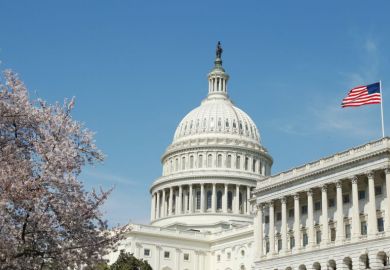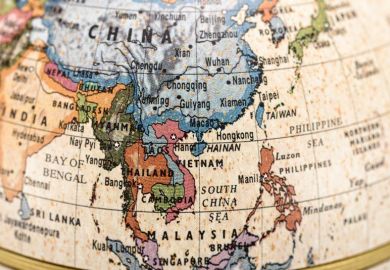Two US-Chinese researchers fired by Emory University for allegedly failing to disclose ties to institutions in China were victims of a “kangaroo court” and of FBI agents who view academic collaboration as “sharing with the enemy”, according to the pair’s attorney.
The dismissals in May by Emory of Li Shi-Hua and Li Xiao-Jiang, married academics who specialise in genetics research, is a clear example of US universities succumbing to an out-of-control US government fear of China, the lawyer, Peter Zeidenberg, told Times Higher Education.
Under federal pressure, many US universities are simply handing over internal email communications involving Chinese scientists, Mr Zeidenberg said.
According to the attorney, FBI agents “rummage around through” the emails. “They try to find discrepancies, and they tell the university to act on it and these guys get fired.”
Officials representing both Emory and the FBI have declined to discuss details of such cases, which appear to have originated with letters sent by the National Institutes of Health to at least 55 institutions since last August.
In the cases of Li Shi-Hua and Li Xiao-Jiang, both of whom had been professors of human genetics at Emory, the university issued a brief statement saying they “failed to fully disclose foreign sources of research funding and the extent of their work for research institutions and universities in China”.
An Emory spokeswoman declined to offer any elaboration.
The suggestion that either of the academics, both naturalised US citizens, had hidden the fact that they had extensive and ongoing connections to their native country was absurd, Mr Zeidenberg said. They both worked as visiting professors at Jinan University in Guangzhou and regularly described collaborations there in their academic presentations, he said.
Both worked entirely on openly shared research, with nothing that was proprietary or classified, Mr Zeidenberg said. “They’re geneticists – they’re not making anything, they’re not making an end product,” he said. “Nothing is classified – nothing, nothing, nothing.”
Many US university leaders agree that the FBI appears to have taken a campaign against a legitimate and serious problem of Chinese theft of business and government secrets and expanded it to pursue academics who have Chinese ties but engage in no proprietary or classified activities.
In recent weeks and months, leaders of several major US research institutions – including Stanford, Yale and Columbia universities; the University of California at Berkeley; the University of Michigan-Ann Arbor; and the Massachusetts Institute of Technology – have written open letters urging government officials to respect legitimate research partnerships with China and other countries.
The extent to which US universities are either resisting or acceding to the FBI’s pressure is unclear. Beyond Emory, the other known case of sackings resulting from the crackdown involves the MD Anderson Cancer Center in Houston, which dismissed three scientists in April.
Mr Zeidenberg said the academics were fired without any kind of due process to make clear the nature of the accusations against them. Emory had made no suggestion whatsoever that Li Shi-Hua and Li Xiao-Jiang were involved in classified or proprietary work, the attorney said, adding that the complaint against them appears to involve possible technical paperwork violations concerning the disclosure of contacts with China.
“There hasn’t been an opportunity to review evidence, to answer charges, to understand the allegations, and to give a response,” he said. “It’s a kangaroo court.”
The pressure on Emory and other institutions appears to be driven entirely by FBI agents who have “no understanding, sympathy or appreciation for what the role of these scientists is, and [who] view [research] collaboration as sharing with the enemy”, Mr Zeidenberg said.
“American scientists are the most successful in the world because they share and they collaborate,” he said. “That whole culture absolutely makes no sense to agents who are looking at this.”
With their options in the US apparently closed off, Li Shi-Hua and Li Xiao-Jiang – whose advances include using pig models to tackle neurodegenerative diseases such as Alzheimer’s, Parkinson’s and amyotrophic lateral sclerosis – now appear likely to help build up China’s research prowess. The president of Jinan University, Song Xianzhong, has reportedly invited them to work there full time.
POSTSCRIPT:
Print headline: US university ‘kangaroo court’ fired Chinese pair
Register to continue
Why register?
- Registration is free and only takes a moment
- Once registered, you can read 3 articles a month
- Sign up for our newsletter
Subscribe
Or subscribe for unlimited access to:
- Unlimited access to news, views, insights & reviews
- Digital editions
- Digital access to THE’s university and college rankings analysis
Already registered or a current subscriber?







